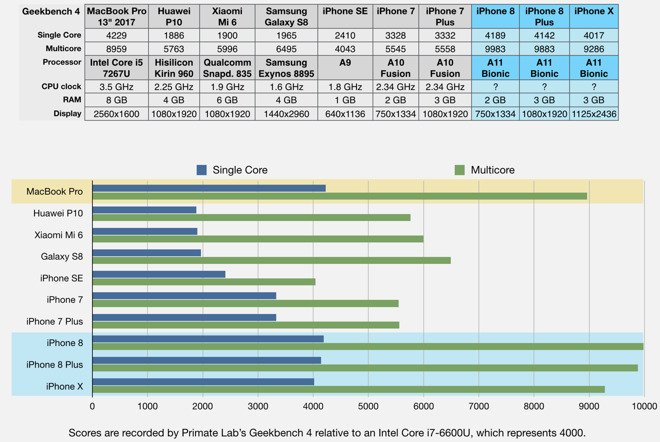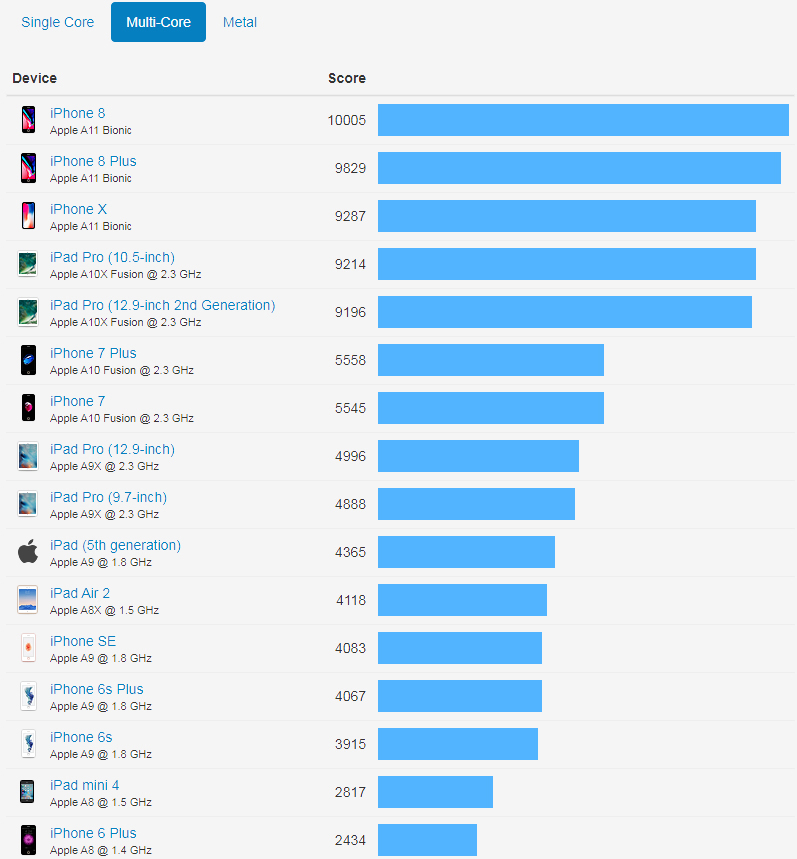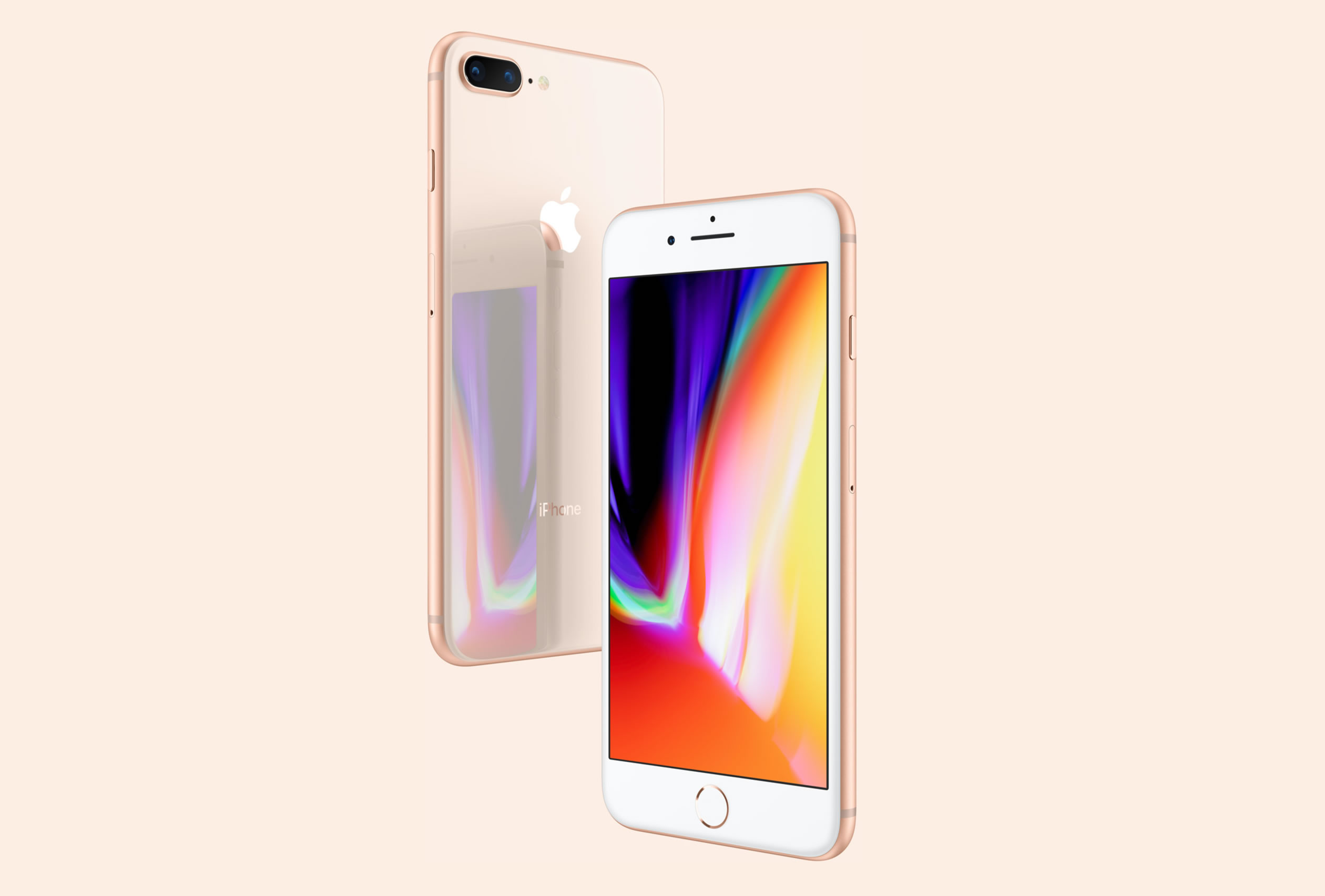Synthetic benchmark results aren't as meaningful as they once were yet still, they can be quite telling of the general level of performance you can expect from a specific setup. Take Apple's latest batch of iPhones, for example.
The iPhone 8, iPhone 8 Plus and iPhone X are all powered by the new A11 Bionic SoC which features two high-performance processing cores alongside four efficiency-minded cores. Apple said during its reveal that the performance cores are 25 percent faster than the previous generation A10 and the efficiency-focused cores are 70 percent faster.
Now, we've got some hard numbers to go by.

Apple's latest have made an appearance on Geekbench, one of the most popular benchmarking applications around. The results almost seem unfair as the A11 Bionic is able to outperform Apple's own MacBook Pro equipped with an Intel Core i5-7267U processor (granted, it's a U-series chip, but still).
As for other phones, the A11 Bionic thoroughly trounces the Snapdragon 835, Exynos 8895 and Kirin 960 found in the Xiaomi Mi 6, Samsung Galaxy S8 and Huawei P10, respectively, in both single and multi-threaded tests.

Again, this is only one set of synthetic benchmarks but they look promising and are a testament to what can be done when you design both hardware and software under one roof.
Apple's iPhone 8 and iPhone 8 Plus ship on September 22 followed by the iPhone X on November 3.
